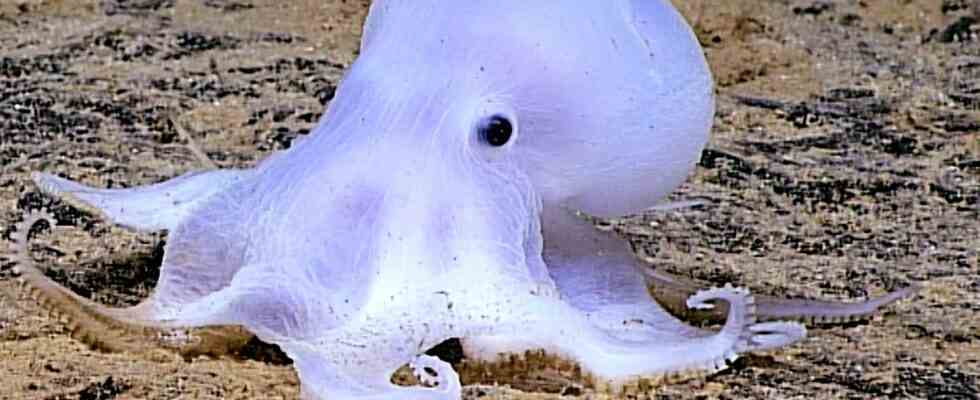Fascinating shots from the sea:
In 2016, researchers discover a spooky octopus and give it the name Casper.
This species of octopus has never been sighted in the ocean before.
The white octopus sits on the seabed, gently wiggles its short arms and looks into the camera of the diving robot.
And that at a depth of more than 4000 meters off the coast of Hawaii.
Up to that point, the only cephalopods that could be filmed at the ocean depths were Dumbo octopuses.
That’s another reason why seeing Casper was a special moment for curator Janet Voight: “It’s completely new and different”.
For an incredible five years, scientists have analyzed Casper by reviewing archived footage.
Many questions arose:
Why is the animal so pale?
The scientist suspects that the sighted octopus is so pale because its food contains too little dye.
Most squid have brightly colored chromatophores in their skin.
They can instantly change their appearance to protect themselves from predators.
And why are the octopus’ arms so short?
“The flatter and more tropical you are, the longer and thinner your arms are” Janet Voight, curator of invertebrate zoology at the Field Museum of Natural History in Chicago
According to Voight, more and more octopuses have short arms.
The marine animals have found a new way to reach for food and no longer have to stretch out so much.
Reviewing the footage, the scientists discovered dozens more specimens that look similar to Casper’s octopus.
“They might be quite common. It’s just an indicator of how little we know about what’s down there.” Janet Voight, curator of invertebrate zoology at the Field Museum of Natural History in Chicago
So far, the pale Casper octopuses do not have an official name because all scientific knowledge comes only from pictures.
Because so far nobody has been able to collect a specimen to study it in detail.
“With an octopus, you really need it in your hands,” Janet Voight, curator of invertebrate zoology at the Field Museum of Natural History in Chicago

